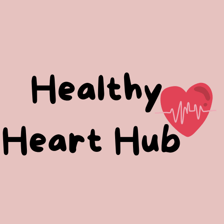5 lesser known Clinically Proven Ways to Lower Blood Pressure Naturally
DIET AND HEART HEALTHHOW TO LOWER CARDIOVASCULAR RISKEXERCISE AND HEART HEALTH
2/19/20252 min read


5 lesser known Clinically Proven Ways to Lower Blood Pressure Naturally
While many natural remedies claim to lower blood pressure, only some have strong scientific backing. Here are five clinically proven methods that effectively reduce blood pressure:
1. Slow, Deep Breathing (Resonance Breathing)
Controlled breathing techniques have been shown to activate the parasympathetic nervous system, reducing stress and lowering blood pressure. Resonance breathing (5-6 breaths per minute) has been clinically proven to lower both systolic and diastolic blood pressure by improving heart rate variability and reducing sympathetic nervous system activity. Studies support slow breathing as an effective tool for hypertension management.
2. Music Therapy
Research shows that listening to relaxing music—especially classical, meditation music, or slow-tempo beats—can lower systolic blood pressure by up to 7 mmHg. Music therapy reduces stress hormones like cortisol and promotes relaxation, helping to regulate blood pressure naturally. One study found that patients who listened to 30 minutes of classical or meditation music daily experienced a sustained drop in blood pressure.
3. Isometric Handgrip Exercises
Unlike traditional cardio workouts, isometric exercises involve static muscle contractions, such as squeezing a handgrip device. Studies show that performing isometric handgrip exercises for 12 minutes, three times a week, can lower blood pressure by up to 10 mmHg over time. The American Heart Association recognizes isometric training as an effective way to improve vascular function and reduce hypertension.
4. Acupuncture for Hypertension
Clinical studies suggest that acupuncture may help regulate blood pressure by stimulating nerve pathways that relax blood vessels. Research published in the journal Circulation found that patients receiving electroacupuncture (low-level electrical stimulation through acupuncture needles) experienced significant reductions in blood pressure, with effects lasting several weeks. Acupuncture is believed to modulate the autonomic nervous system, reducing stress-induced hypertension.
5. Probiotic-Rich Diet
Gut health is linked to cardiovascular health, and probiotic consumption has been clinically proven to reduce blood pressure. A meta-analysis of randomized controlled trials found that daily intake of probiotic-rich foods (like yogurt, kefir, and fermented vegetables) led to an average systolic reduction of 3-4 mmHg. Probiotics improve nitric oxide production, which relaxes blood vessels and enhances circulation.
Final Thought
These clinically backed methods offer natural ways to complement traditional hypertension treatments. While they may not replace medication for severe cases, integrating these strategies can help improve blood pressure and overall heart health. Always consult a healthcare professional before making significant changes to your lifestyle.
